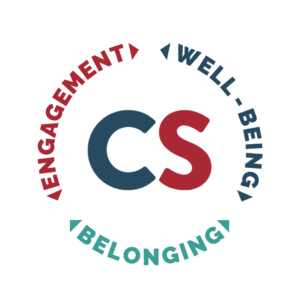Success: If We Can’t Define It, How Can We Expect It?

What would most help all students (in — fill in your district) to be successful? How many times have you heard this question? My response is — how do you measure success? What is success? And, how do we know we have achieved it? So often in education we measure, or attempt to measure, success without discussing what it means to be successful. We talk about grades, credits, and scores on tests. These somehow seem tangible, concrete, and easy to monitor, but do they make sense? Do they measure motivation, engagement, respect, citizenship, persistence, improvement, and scholarly work, or do they measure compliance, and an ability to play the game of school? In my last post, I discussed a few missing pieces of education. Although this conversation is geared toward working with students, it is necessary when working with teachers as well.
As we transition to Common Core, success must mean more.
At the beginning of the school year, I ask students to consider this essential question — What does it take to be a successful person? At the beginning of the year is great, but this conversation can happen at any time in the year, like tomorrow, or next week. It is critical in an independent/blended learning environment for a student to own their educational experience. To start the year we want students to learn from very successful people what traits and dispositions will lead to success. Prior to beginning any official coursework, students examine and reflect on three models of success and leadership. We weave these philosophies into the curriculum through the 4 R’s of richness, recursion, relations, and rigor.
The three models of success we explore are:
- Emotional Intelligence and Daniel Goleman’s work.
- John Wooden’s Pyramid of Success.
- Habits of Mind and Art Costa’s work.
We ask: Who are these people? Why are they important? What other models should we be looking at?
These lessons may be more important to life success than the academic classes students take.
Students are asked to watch the following three videos:
- Daniel Goleman Explains Emotional Intelligence Video,
- John Wooden: the difference between winning and succeeding Video, and
- Art Costa — Summary of evidence supporting Habits of Mind Video.
Students watch the videos above, and are asked to do a bit of research, including taking a look at Goleman’s website, Wooden’s website, and the Habits of Mind website. Students then complete discussion boards, as well as face to face discussions answering the following questions thoroughly and with deep insights:
- What is your reaction to Goleman’s/Wooden’s/Costa’s work?
- What do you think is the most important idea you gleaned from your exploration?
- What questions do you have for these men, your classmates, or me?
These conversations are powerful, and lead to more discussions throughout the year. If we can integrate these definitions into the designing, facilitating, reflecting, and big picture planning that we, as educators are supposed to do, then we will be well on our way to purposeful success, and authentic ways of measuring it.







Tom Vander Ark
Thanks Courtney, great post. See Non-cognitive Skills: Bad Name, Really Important
http://www.gettingsmart.com/gettingsmart-staging/2012/11/non-cognitive-skills-bad-name-really-important/
Also, Summit Public Schools is super thoughtful about goals and assessments--including habits of success. Worth skimming their assessment plan (which is the best outcome map I’ve seen)
https://app.activateinstruction.org/playlist/resource-sview/id/51b8fe8707121cd178000006/rid/51b9108d07121ced01000004/bc0/search/bc1/playlist
Courtney Hanes
Thank you for the great resources, Tom! I will definitely check these out.